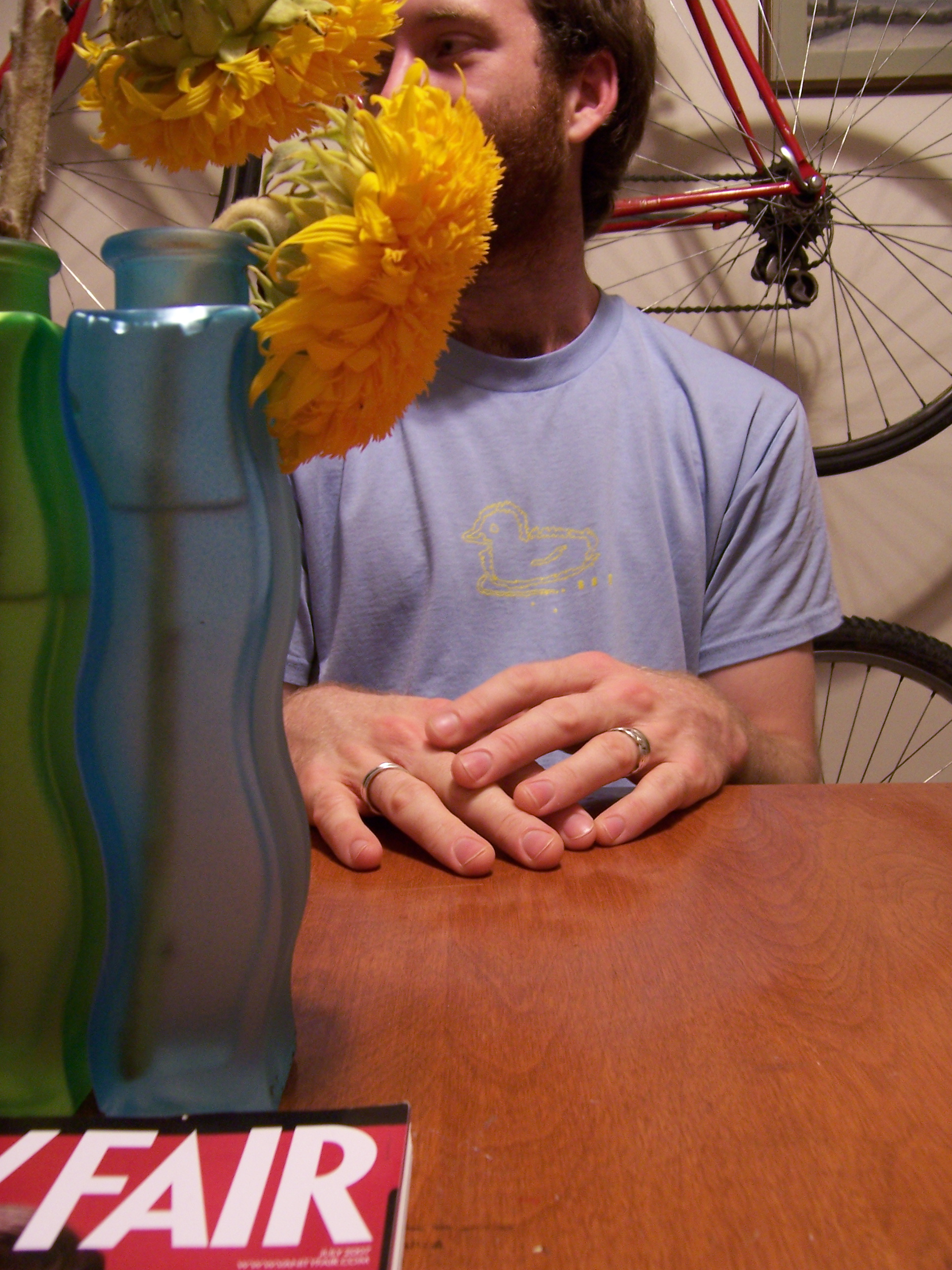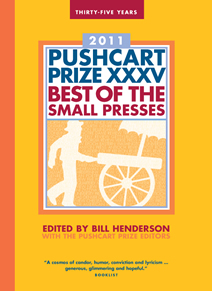Beauty, Any Beauty
Brad Fruhauff
 Poetry Editor Brad Fruhauff read two things about beauty today and couldn't help but put them together.
Poetry Editor Brad Fruhauff read two things about beauty today and couldn't help but put them together.
Mark Jarman in "Tea Fire"* tells of driving toward a forest fire one evening, "seduced / like night moths," to witness its terrible beauty. He and his unnamed, unnumbered companion(s) are in awe of the way the smoke turns silver as it passes over the moon and the way the "red body" of the fire seems to desire to follow the waves of "ashy cumulus" into the sky. Then, however, they come upon homes threatened by the fire and turn back "embarrased--"
Not moths at all but dazzled lovers of beauty, any beauty.
The poem works because Jarman convinces us as readers of the beauty of the fire just as the "we" of the poem saw it, but then we share, too, in the abashment of realizing that this beauty comes at the cost of people's homes. It is immaterial whether the homes are the extravagant vacation cottages of the wealthy which, when we hear of them, we often want to think were extraneous and expendable anyways; for Jarman, they are still homes - "doomed homes," in fact. The valence of the poem is that the dazzling beauty of the fire momentarily dislocated the speaker from the heaviness of this world of responsibility and care.
"Not moths at all" could be read as "not drawn to the fire by a morbid fascination with death - our own or others," for it is the threat of destruction by fire that embarrasses the travelers. But "dazzled lovers" does seem to suggest that their difference from moths is not in their volition but in the object. They are drawn by beauty rather than destruction, but they are drawn just the same. As "lovers," they exist in a timeless, even exclusive state - the state of early passion familiar from our adolescence that, we must admit, while pleasant is not without blame. Yet the poem affirms that what they pursued was, indeed beauty - any beauty, beauty wherever it can be found when it is so rare a thing.
I've been thinking about beauty ever since I started studying the sublime. Beauty is often figured as the pacific, angelic counterpart to the dark, excessive sublime - roughly the attributes of Blake's Heaven and Hell, respectively. Suffice to say that Hell and the sublime are quite chic these days, while beauty is trite at best (think Snow White) and dangerous at worst (something like her wicked step-mother). Classical beauty, after all, entailed an ability of the viewer to perceive it adequately, which we nowadays recognize as the road to violence.
Enter David Bentley Hart's The Beauty of the Infinite: The Aesthetics of Christian Truth (Eerdmans, 2003). There are a number of bold and counterintuitive aspects to this title, but suffice to say Hart does not find beauty violent or trite. Instead, he attributes to beauty a "gratuity" and a "prodigality" that gives of itself - sometimes in startling and disturbing ways: "a village ravaged by pestilence may lie in the shadow of a magnificent mountain ridge . . . ; Cambodian killing fields were often lushly flowered." Beauty is saved from the violence of abstraction precisely by its particularity, its inherence in just such a arrangement of things. Christian beauty, he argues, inheres in the unavoidable and often offensive narratives of the gospels; most centrally, of course, in the life, death, and resurrection of Christ.
In "Tea Fire" Jarman registers our modern ambivalence about beauty - something we're drawn to but also embarrassed about. It's a tension also present in "The Heronry." Seeking the solace of a forest preserve, he reflects on his own processes as he sits quietly observing a pond and its many birds. Among his many reflections are these final ones, which I hope I'm okay in quoting at length:
I almost think I could write about it forever, Adding word to word like coral in a reef, An excess of language like the genetic code, an extravagance like all the stars, Too much ever to be needed except By the need for there always to be more, That need which, when the end comes, looks past it For woods and hills and ocean, For fields and streets and houses and horizon, Repelled by blankness, expecting beyond sleep The dream country and its population.
Here he finds himself caught between beauty, language, and desire. Is his experience a projection of his own need "for there always to be something more"? (And if so, what?) Or does it inhere, as Hart would argue, somehow in the world itself, if not in any precise way? Or is it a function of language, words that spring up in the mind as a coral reef?
Jarman's poems may lack the confidence that faith ostensibly offers, but they are nonetheless compelling meditations on beauty because they are full of the desire that faith, in many ways, is - desire for there to be more than what is given and at the same time desire for the given to be "given," as a gift, as what is not labored for or dubiously "earned." Sometimes the challenge for the (American) Christian is to clear away the screen of faith to see - really see - the manifestations of glory that so many have pointed us toward without knowing their name.
* Jarman's poems can be found in the Autumn 2010 edition of The Hudson Review.










